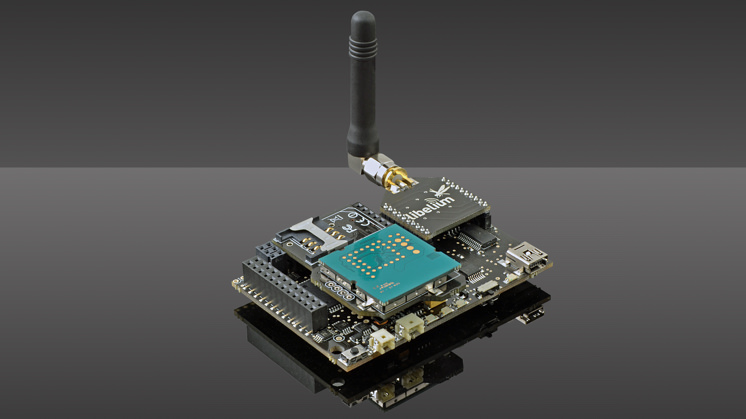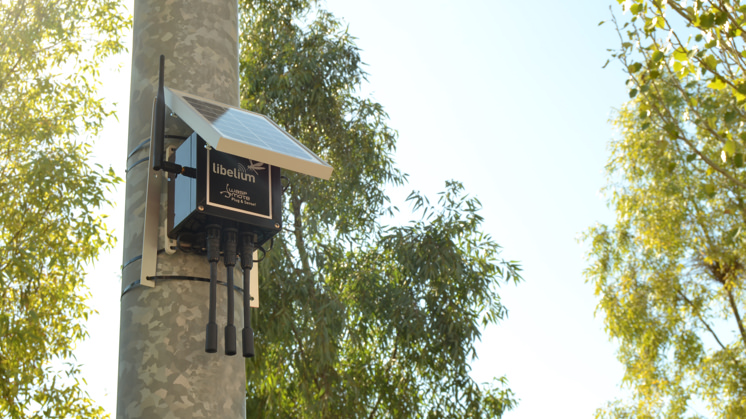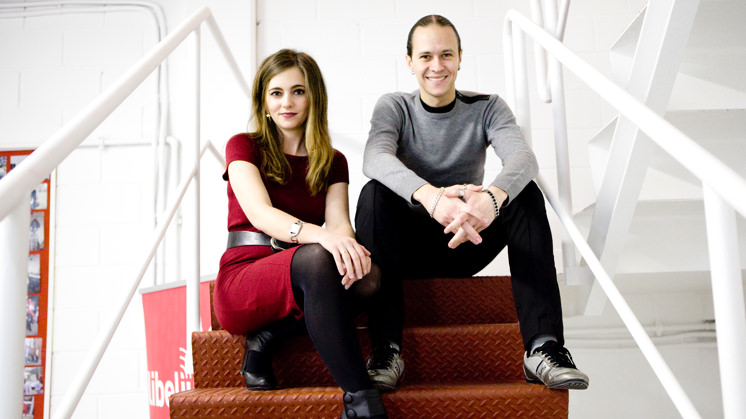Interview with Alicia Asín, CEO of Libelium
"The Internet of Things is the connection between the physical and digital worlds"
Business Social transformation R&D Interviews
October 2019. Reading time: 4 minutes
The IoT or Internet of Things is going to characterise our future. And Alicia Asín, CEO of Libelium, has much to say on the subject, because her company offers devices, such as the Waspmote Plug & Sense, that resolve problems of interoperability and maximise the possibilities offered by this technology in, for example, the development of smart cities.
Interview with Alicia Asín, CEO of Libelium.
During the fifth Iberdrola Group Digital Summit we talked with Alicia Asín, CEO and co-founder of Libelium , who gave us some clues as to the possible impact a technology like the Internet of Things (IoT) may have on our daily lives. Libelium is heavily involved in projects related with smart cities, and in this respect it has set three objectives: to improve citizens' quality of life, to reduce a city's costs or increase its income and to make them sustainable and respectful of the environment. The winner of the European Union's Women Innovators award for 2018 invites us to look into the future.
, who gave us some clues as to the possible impact a technology like the Internet of Things (IoT) may have on our daily lives. Libelium is heavily involved in projects related with smart cities, and in this respect it has set three objectives: to improve citizens' quality of life, to reduce a city's costs or increase its income and to make them sustainable and respectful of the environment. The winner of the European Union's Women Innovators award for 2018 invites us to look into the future.
Briefly, what is the Internet of Things and how is it affecting people's daily lives?
The Internet of Things is the connection between the physical and digital worlds. It consists of our being able to put sensors in any object: a table, a room, or an irrigation sprinkler, and connect them to the Internet in order to establish a dialogue with them. The impact of this is disrupting in absolutely every industry and we're seeing it in cities, in mobility, in agriculture, and so on.
You're the co-founder and CEO of Libelium. What does your company do?
Within the IoT, Libelium is basically dedicated to facilitating the interoperability. In other words, how we manage to coordinate a large number of different sensors, various communications protocols, a huge number of platforms in the Cloud, etc. To do this, we've designed a platform for sensors that can bring together these three components and resolve the problem of interoperability.
"If women exclude themselves from STEM careers, the wage gap, in a few years, will increase even more"
What's your flagship product?
Libelium's business revolves around our Waspmote Plug & Sense, a device to which you can connect any type of sensor with a communication protocol can be connected to in order to send information to the Cloud or to another platform.
Do you take part in many smart city projects? What do they involve?
For projects relating to a smart city we always base ourselves on three pillars: we want to improve citizens' quality of life, we want to reduce the city's costs or increase its revenues and we want to make it more sustainable and respectful of the environment. The smart city strategy consists of applying all the technologies and all the tools we have at our disposal to achieve these three objectives.



What are Libelium's future plans?
The challenge for us now is to get ever closer to the end customers to better understand better their needs.
In 2018, you received the EU Prize for Women Innovators. What do these prizes mean to you and Libelium?
They've given Libelium more credibility and introduced us to international channels. The European Union award was very important because ever since then we've taken on a new dimension as far as media impact is concerned, including at the international level.
How would you encourage women to opt for STEM careers?
In an increasingly digitised world, the most important jobs with the most responsibility, and therefore, the best pay, are going to be increasingly associated with having a technological background. If women exclude themselves from these careers, the wage gap, in a few years, will increase even more.





